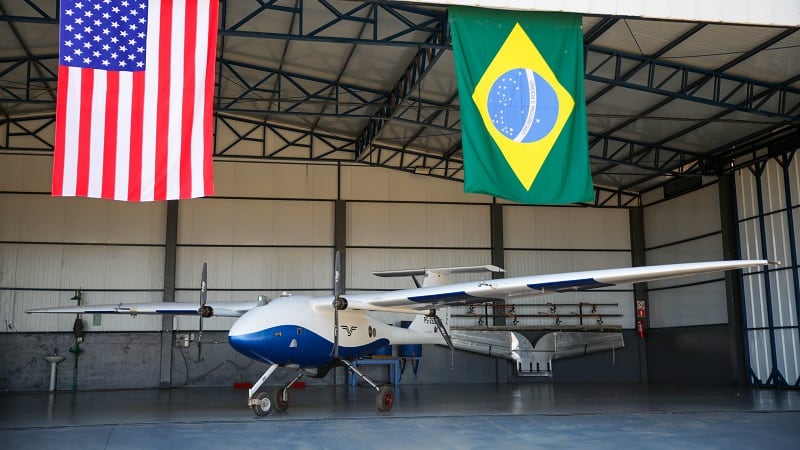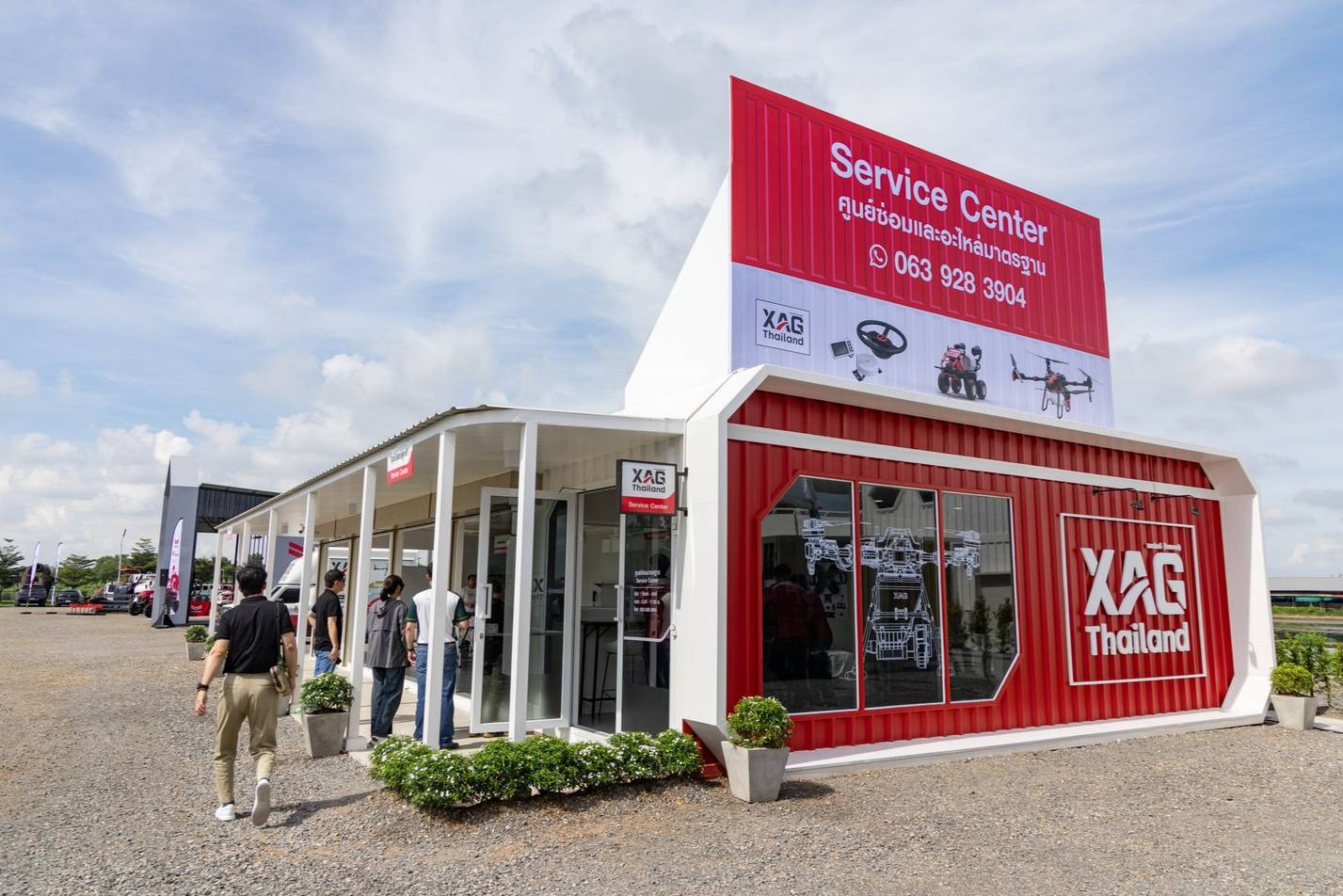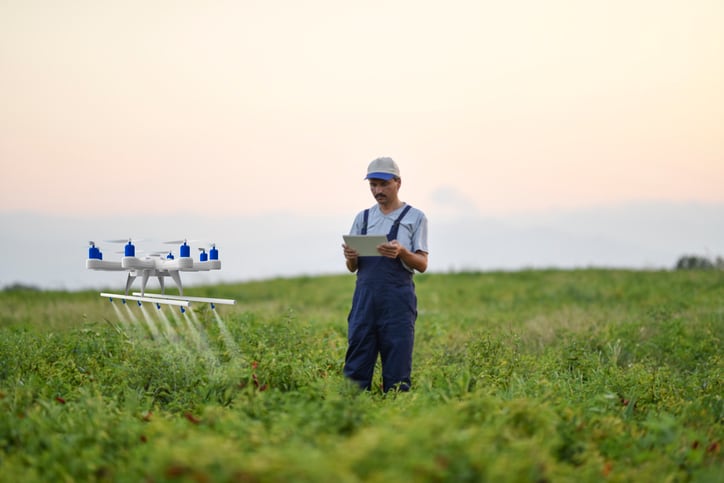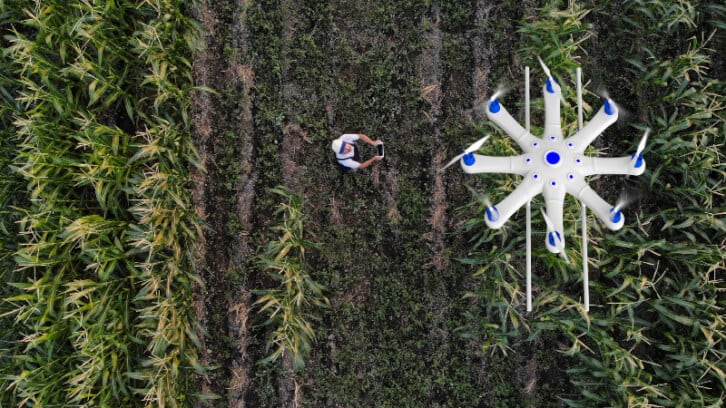Pyka will soon have more electric airplanes soaring high over Brazil, following a deal with Latin American aviation distributor Synerjet, marking a major step in the start-up’s global commercialization strategy.
Synerjet will become the first authorized distributor of Pyka’s Pelican 2 aircraft in Brazil as part of a deal for 60 planes, including two planes currently en route and three or four more planes set to arrive in the next three months, Volker Fabian, chief commercial officer for Pyka, told AgTechNavigator.
The deal represents “a leap forward in the development of the Brazilian market for us, rather than growing it all organically ourselves,” Fabian said. Pyka entered Brazil last year with the sale of several of Pelican crafts to one of the country’s leading agricultural producers, SLC Agrícola.
Inside the cockpit of Pelican 2
Earlier this year, Pyka revealed the current generation of its autonomous crop protection aircraft, the Pelican 2, which features a 300-liter payload that can spray up to 90 hectares per hour, according to the company. Pyka also offers Pelican Cargo, an airplane with a 200-mile range, a 400-pound payload, and 66 cubic feet of storage volume.
“The first-generation crop-dusting aircraft evolved over time, quite significantly. So, [at the] beginning of this year, we decided it was worth announcing the second generation aircraft with increased payload, with increased range, with increased amount of features and other things officially to the market as the Pelican 2,” Fabian elaborated.
He added, “We are probably going to do something similar near term with the cargo aircraft and announcing a modified and significantly enhanced version of the cargo way update to the market.”
Pyka prioritized agriculture and cargo applications for autonomous planes, since they can fly unmanned, Fabian explained. With an autonomous aircraft, “if there is an incident — an unfortunate incident — then you may be hurting a few crops, but you are not necessarily endangering lives,” he elaborated.
Pyka’s global growth strategy: First South America, then the US
Pyka is first focusing on growing in Latin America — and Brazil especially — because of the massive need for crop protection technologies in the region, given the prevalence of double and triple cropping in South America, Fabian explained. In addition to working with Brazilian ag producer SLC, Pyka conducted a pilot project with Dole’s Isletas Farm in Honduras, which produces bananas, as shared in a release.
Pyka achieved the necessary regulatory approval to operate its plane in Brazil and Federal Aviation Administration authorization in the U.S., he added. Additionally, Pyka achieved a commercial certification to fly an agricultural spray mission overnight in Costa Rica in fall 2022.
“Banana as a crop was an ideal starting place for us because they get sprayed all the time. And they get sprayed at least once a week, if not more. So that allows a farmer who has 1,000 hectares or so of banana fields to just use one Pelican and spray over and over again,” Fabian said.
Pyka is already attracting growers’ interest across South America and has identified several markets in Asia, including the Philippines due to its banana production, Fabian pointed out.
“With the significant impact that we have made in the Brazilian market and in social media, we now receive a lot of inbound inquiries from Argentina, Paraguay, [and] Uruguay — everything in South America. That is probably the next step for Pyka to start developing, similar to what we’ve done in the Brazilian market,” Fabian said.
Beyond Brazil, Pyka sees a bright horizon for aerial robotics in the ag sector, as there are nearly 55,000 crop dusters in service that could be switched to autonomous robots, Fabian said. “I can see a market for Pyka easily of 10,000-plus airplanes,” he added.
However, Fabian is cognizant that Pyka’s engineering and manufacturing capacity must be factored into growth plans.
“We need to think about where we are actually going to spend our time, and it’s not just the sales time, but it’s also the engineering time, the manufacturing time. So, I have a road map in mind for the next five years where sales are going to be conducted, but it needs to gel with our company,” Fabian emphasized.





